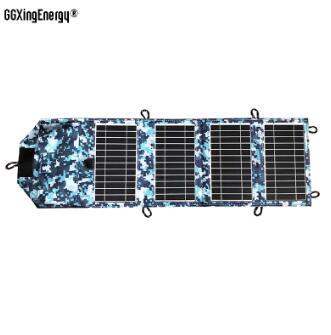Harnessing the Power of the Sun: Are Solar Chargers Suitable for Outdoor Use
2024-07-24
Introduction
For outdoor enthusiasts, staying connected and having access to power can be a significant challenge. Whether you're hiking in remote areas, camping in the wilderness, or simply spending a day at the beach, solar chargers offer a compelling solution. But are they truly suitable for outdoor use? In this blog, we’ll explore the benefits, potential limitations, and practical tips for using solar chargers in the great outdoors.
The Benefits of Solar Chargers in Outdoor Environments
Solar chargers bring several advantages that make them particularly appealing for outdoor activities:
1. Eco-Friendly Energy Source: Solar chargers harness the energy of the sun, providing a green and renewable power source. This is especially important for outdoor enthusiasts who want to minimize their environmental footprint.
2. Portability: Modern solar chargers are designed to be lightweight and compact, making them easy to pack and carry. This portability is crucial for activities such as hiking, backpacking, and camping.
3. Unlimited Power Supply: As long as there is sunlight, you have access to an unlimited power supply. This is particularly useful in remote areas where traditional power sources are unavailable.
4. Versatility: Solar chargers can power a variety of devices, including smartphones, GPS units, cameras, and portable lights. This versatility ensures you stay connected and have access to essential tools.
Potential Limitations of Solar Chargers
While solar chargers offer numerous benefits, there are some limitations to consider:
1. Sunlight Dependency: The effectiveness of solar chargers is directly tied to the availability of sunlight. Cloudy weather, shade, and shorter daylight hours can significantly impact their performance.
2. Charging Speed: Solar chargers generally have slower charging speeds compared to traditional power sources. This can be a drawback if you need to charge devices quickly.
3. Initial Cost: High-quality solar chargers can be relatively expensive. However, the long-term savings and convenience they provide often justify the initial investment.
Types of Solar Chargers for Outdoor Use
Different types of solar chargers cater to various needs and preferences. Here are a few common options:
1. Foldable Solar Panels: These are highly portable and can be easily attached to backpacks or set up at campsites. They are ideal for backpackers and hikers who need to charge devices on the go.
2. Solar Power Banks: These chargers come with built-in batteries that store solar energy, allowing you to charge your devices even when the sun isn't shining. They are great for ensuring a steady power supply.
3. Integrated Solar Backpacks: These backpacks have solar panels built into their design, providing a convenient way to charge devices while carrying your gear.
Practical Tips for Maximizing Solar Charger Efficiency
To get the most out of your solar charger in outdoor settings, consider the following tips:
1. Optimal Sun Exposure: Place the solar panels in direct sunlight and adjust their angle throughout the day to capture the maximum amount of solar energy.
2. Pre-Charging: Before heading out, fully charge your devices and any solar power banks. This ensures you have a backup power source if sunlight is limited.
3. Energy Conservation: Use power-saving settings on your devices and turn off non-essential features to extend battery life. This can help you make the most of the available solar power.
4. Regular Maintenance: Keep the solar panels clean and free of dust or debris to maintain their efficiency. Regularly check for any signs of wear or damage.
Real-World Applications
Solar chargers have proven to be invaluable in various real-world outdoor scenarios:
1. Camping: Keep your camping lights, portable stoves, and communication devices charged without relying on traditional power sources.
2. Hiking: Stay connected and safe with charged GPS units, phones, and emergency beacons.
3. Beach Days: Enjoy extended time at the beach with charged speakers, tablets, and other entertainment devices.
4. Boating and Fishing: Maintain essential equipment and communication devices charged during extended trips on the water.
Conclusion
Solar chargers are a viable and practical solution for powering devices in outdoor settings. While they have some limitations, such as dependency on sunlight and slower charging speeds, their benefits, including portability, eco-friendliness, and versatility, make them an excellent choice for outdoor enthusiasts. By choosing the right type of solar charger and following best practices, you can ensure a reliable power source for your adventures, keeping you connected and prepared no matter where your journey takes you.



